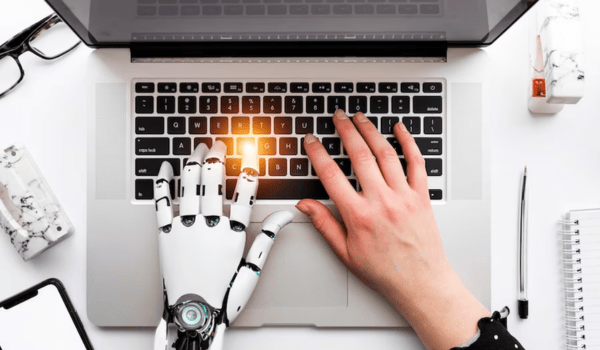Whether professionals are open to seeing artificial intelligence (AI) being used at the workplace is a question that cannot have a definitive answer, at least not yet. After all, AI is being branded a monster that steals jobs and a friendly tool that makes jobs easier in the same breath. The key, therefore, is to strike a balance between technology’s positives and negatives. Quite a challenge
As per the Qualtrics 2024 employee trends survey, 37,000 employees across the world expect their organisations to embrace new technology. What is clear is that employees are also very keen to see their organisations using the technology for good —as a tool for optimising productivity. A good 53 per cent of engaged employees said they’re comfortable with AI at work, whereas 30 per cent of disengaged employees shared the same feeling.
They want AI to help them with their work so that they feel more energised and are able to delegate tasks. They expect AI tools to optimise their productivity, offer them convenience and allow them to focus on the part of work that appeals to them. They want AI to help them delegate tasks that they don’t want to do themselves so that their work becomes more efficient overall.
Simply put, employees would rather have AI serve as an assistant to them than as a manager. A whopping 65 per cent of the C-suite admit being comfortable with AI, whereas only 46 per cent of managers share the same comfort. Tasks that involve writing are what drive employees to seek help from AI. A significant 61 per cent of the employees admitted to this, while 51 per cent agreed or strongly agreed that they would want AI to serve as a personal assistant. Forty-six per cent agreed or strongly agreed that they would want AI to handle internal workplace queries, while 37 per cent agreed or strongly agreed that they would want AI to handle performance appraisals. Only about 29 per cent wished for AI to handle job interviews
The research also found that the highly engaged employees were more open to embracing AI at work. Also, the more senior the employee, the more was their willingness to embrace AI. The more positive the employees felt about their organisation, the more was their trust in the same. The engaged employees were more likely to see the benefits of AI in boosting productivity. The senior people were more likely to believe that their organisation would use AI in their interest.
The disengaged employees did not trust their organisation would use AI to their benefit. They were more likely to think that their organisation would use AI to get rid of them and harbour negativity towards the technology. They were inclined to believe that AI would only help their organisation in poor decision making.
Studies revealed that about 68 per cent employees believed that certain jobs would be threatened by the adoption of AI, while 23 per cent believed their own jobs would be replaced by AI.
A significant portion of youngsters in the 18 to 24 age group used AI in higher education.
Employees today are keen to embrace AI but want to do it on their own terms. They would be more comfortable if the controls of the AI were in their hands.
When it comes to decision-making that involves emotions and social aspects, the reliance on AI is less. In case of job interviews, for instance, employees are not keen to have AI involved, as it lacks emotions. This explains why merely 29 per cent of the employees wish for AI to handle job interviews
While 46 per cent employees in Asia Pacific and Japan are open to AI, 48 per cent are keen to embrace AI in Latin America, while only 38 per cent in America and 38 per cen tin Europe, the Middle East and Africa are keen to embrace AI. That means, the employees in certain parts of the world are more cautious about using AI than in other regions. They want employers to use AI but ethically and responsibly. That brings us back to balance.
The only exception to this cautiousness is seen in employees with disabilities or those who are from the LGBTQ+ community. They are more willing to use AI for human-centered activities, such as performance appraisals and job interviews, as they feel that it will be less biased than humans. They find AI to be more inclusive in nature. About 37 per cent vs 29 per cent employees with a physical or mental disability felt they were more comfortable than the global average if AI interviewed them for a new job or for a promotion.
So employers who wish to adopt technology and also win the trust of their workforce will need to ensure that they embrace AI in an ethical fashion and employ it responsibly.


